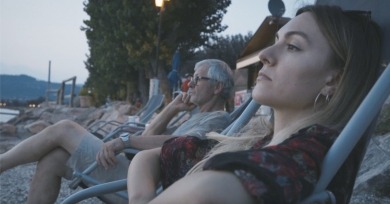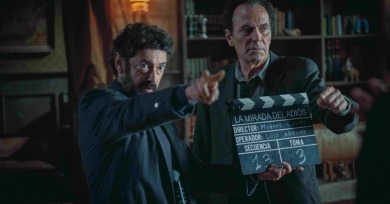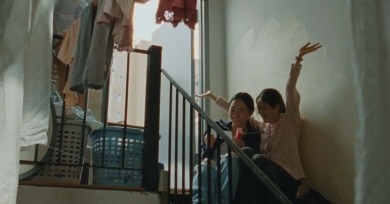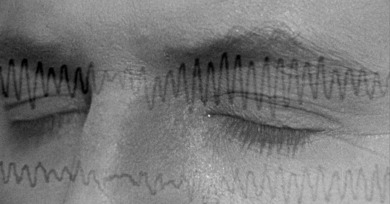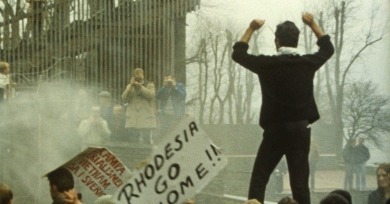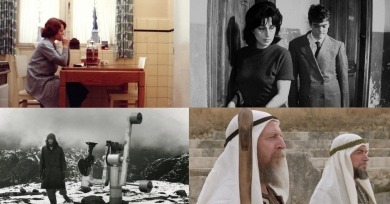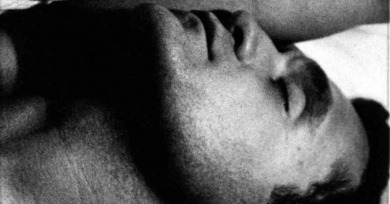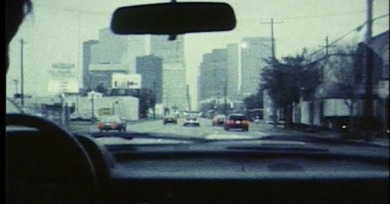David Schwartz
Lina intuitively understands that the anguish the time with her father will cause her is part of the price for a film that exposes in stark terms the workings and results of toxic masculinity.
Close Your Eyes is primarily a movie about growing old and the power of memory, with cinema as its central metaphor. The underlying tension throughout all of Erice’s work is that which lies between the still and the moving image, between the desire to freeze time and the inevitability of its passage.
For the third year, Museum of the Moving Image film curators have visited the Cannes Film Festival and have engaged in a dialogue about the films on offer.
Drawing inspiration from Resnais’s film and Lem’s novel (but mostly from the latter), the Polish director, film professor, and cineaste Kuba Mirkuda has created in Solaris Mon Amour a one-of-a-kind archival masterwork.
Roy Andersson's film captures the planning, action, and aftermath of a mass protest against a planned Davis Cup tennis match in Sweden against Rhodesia. It is a vivid record of 1960s political protest and of a wealthy European nation’s racism.
Jeanne Dielman asserts the importance of its subject while also asking us to reconsider what we look for in—and how we look at—a movie. We inhabit what feels like a simulation of real time, confined except for the occasional errand, to the interior of 23 quai du Commerce.
Close to hour five, his mouth flutters and he breathes a bit spastically, like he is about to wake up. Coming after the preceding stillness, the moment hits like an explosion in an action movie. But the film will end without him actually waking.
For a movie that was directed, photographed, edited, written by, and stars Richard Linklater, It’s Impossible to Learn to Plow by Reading Books is remarkably free of ego.
